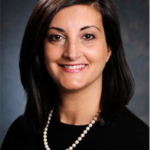
By Tyler Greer
UAB News

What are the questions women need to ask their primary care physician about their breast health, or their oncologist if they are diagnosed with cancer? Helen Krontiras, M.D., director of the University of Alabama at Birmingham Breast Health Center and Erica Stringer-Reasor, M.D., assistant professor in the Division of Hematology and Oncology, give these five recommendations.
Can I tell you my family history with breast cancer?
If your primary care physician does not ask about your family’s history of cancer, ask to share it. “Every woman should know her family history of cancers, especially breast, ovarian, uterine, colon and prostate cancer, and she needs to share this information with her physician,” Reasor said. “These cancers tend to cluster in families with hereditary cancer syndromes. When physicians know this, it will enable them to calculate the lifetime risk of breast cancer or other cancers and refer patients to the appropriate screening test.”
What are the warning signs of breast cancer?
Lumps on the breast or under the arms are not the only signs that something may be wrong. “Some of the warning signs of breast cancer include itching or bloody discharge from the nipple, inverting of the nipple, wrinkling of the skin on the breast, painless redness around the breast or a change in breast volume — either shrinking breast size or enlarging of breast size,” Reasor said.


How often should I get a mammogram, and at what age do I start?
When Simmons asked her doctor about getting a mammogram, she was quizzed on her family history. “Women with a strong family history of breast cancer on either side of their family may want to start screening earlier than the American Cancer Society guideline of women ages 40 to 69 years,” Krontiras said. “Some early-stage breast cancers are found only by advanced imaging techniques including mammograms, ultrasounds or MRI of the breast, so it is especially important for women in the 40-69 age range to get their yearly mammogram.”
Now that I’ve been diagnosed with breast cancer, what type do I have?
There are many different types of breast cancer, and many different types of treatment options available depending on the diagnosis. Most breast cancers are carcinomas, a type of cancer that starts in the cells that line organs and tissues like the breast. In fact, breast cancers are often a type of carcinoma called adenocarcinoma, which is carcinoma that starts in glandular tissue. Other types of cancer occur in the breast too, such as sarcomas, which start in the cells of muscle, fat or connective tissue. Invasive ductal carcinoma is the most common type of breast cancer, making up almost 80 percent of all breast cancers. The American Cancer Society estimates more than 180,000 women in the United States find out they have invasive breast cancer each year.
Is my tumor noninvasive or invasive, and does it express hormone receptors — hormone-positive or hormone-negative?
Hormone-positive cancers are often not fast-growing. Hormone-negative cancers tend to be fast-growing and require chemotherapy in the treatment plan. Regardless of what type of breast cancer a woman is diagnosed with, Krontiras says to not make snap decisions without thoroughly investigating all options. “While the diagnosis of breast cancer can be overwhelming, it’s important to not rush into medical treatment decisions based on fear,” Krontiras said. “Women should bring a close family member or friend to their doctor’s appointment to help them better understand their treatment options, which could include surgery, radiation, chemotherapy or hormone blocking therapy.”




